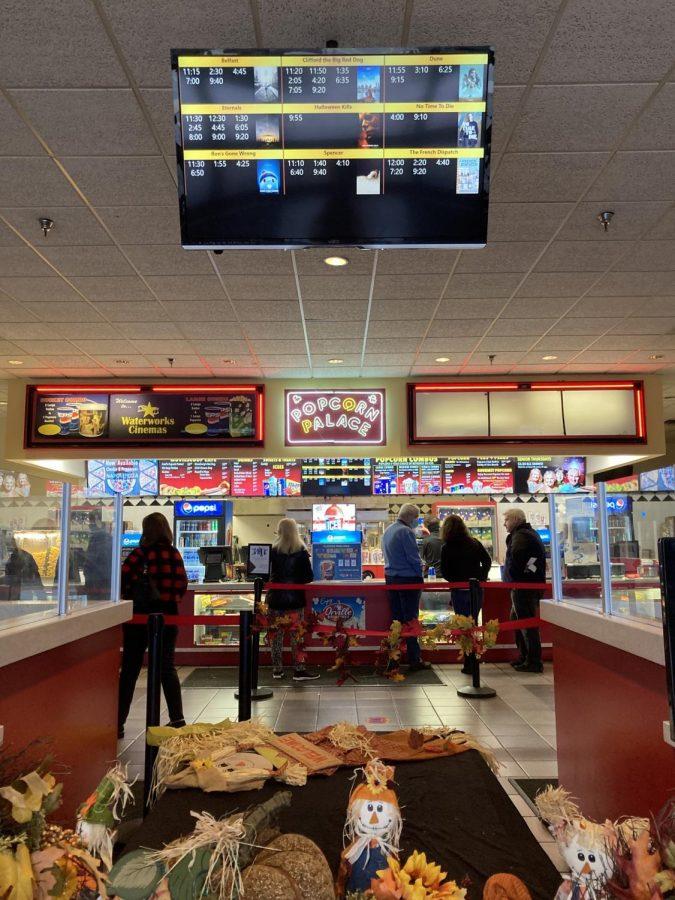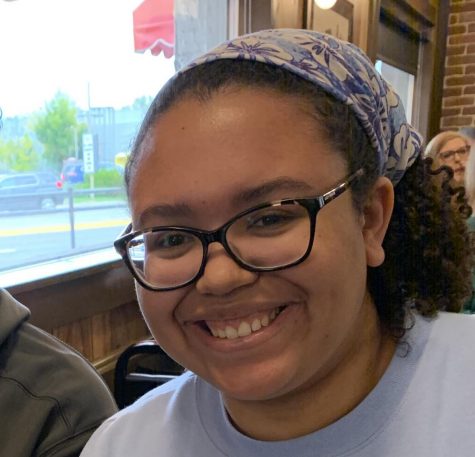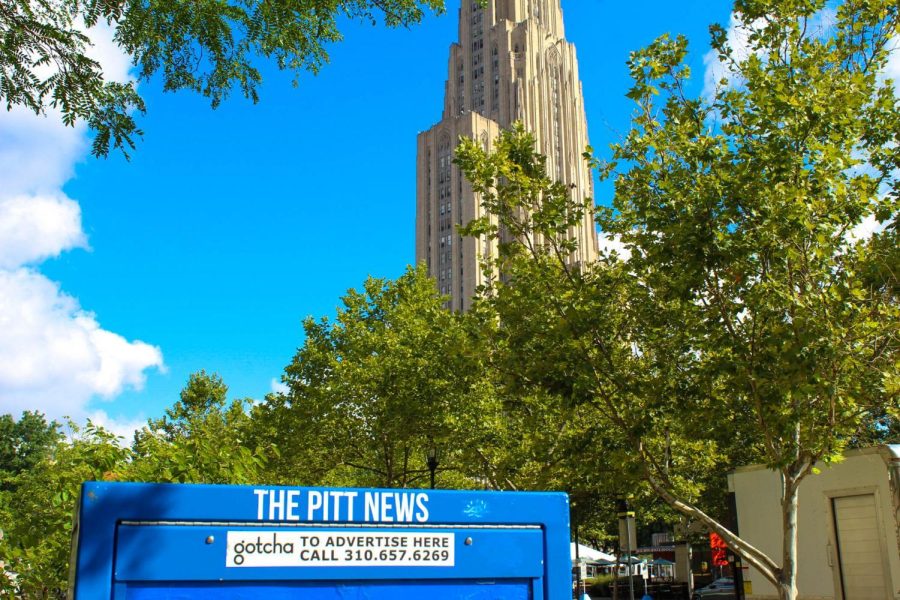Three Rivers Film Festival showcases independent filmmakers
Alyssa Carnevalli | Staff Photographer
Moviegoers in line for concessions at Waterworks Cinema in Fox Chapel on Saturday.
November 15, 2021
Kathryn Spitz Cohan, the executive director of Film Pittsburgh, described the array of independent films shown over the course of the Three Rivers film festival last Wednesday. She said the films would evoke many different reactions in the audience.
“The selected films run the gamut of emotions,” she said. “You will laugh or cry and maybe even get angry about what we see on the screen, all while learning more about who we are as people here and around the world.”
The Three Rivers Film Festival is a Film Pittsburgh program running from Nov. 10 until Wednesday. It is the longest running film festival in southwestern Pennsylvania and showcases 32 independent films. The Kelly Strayhorn Theater in East Liberty will screen a majority of the films. Other theaters, including the Hollywood Theater in Dormont, the Tull Family Theater in Sewickley and Waterworks Cinemas will also be screening select films.
Spitz Cohan said the organizers look to curate a wide variety of films for the audience.
“It’s our job to find the best films out there and then put together a lineup that’s diverse. So we’re providing opportunities for all of our patrons, all of our audience members to find something that will appeal to them,” Spitz Cohan said. “We are looking for a wide range of topics and genres and countries.”
Attendees can purchase individual tickets for in-person showings or purchase a ticket to stream a select number of films such as “The Club of Angels,” “The Feast” and “Luzzu.”
The festival began last Wednesday night with a screening of “Small Town Wisconsin” at the Kelly Strayhorn Theater. The 2020 film, premiering in Pittsburgh for the first time, tells the story of Wayne Stobierski (David Sullivan) whose ex-wife is moving to Arizona with their son, prompting Wayne to take their son on a trip to Milwaukee before the move. Afterward, the film’s director, Niels Muller, and lead actor David Sullivan talked about the film and answered audience questions.
Marla Meyer, an audience member at the screening, said she enjoyed getting to see films that fell outside the mainstream media.
“It’s just really fun to see real really good quality films as opposed to the more commercial films and you know, stretches your exposure and your comfortability, or uncomfortability and imagination,” Meyer said. “It’s just so much more interesting, like discovering foreign films for the first time.”
Caroline Collins, the associate director of Film Pittsburgh, said involving the filmmakers is one of the things that sets Three Rivers apart from other film festivals.
“There is a lot of working with the filmmakers. Film Pittsburgh is I think unique in that we bring the filmmakers into town. That’s a big part of our festival,” Collins said. “So we try to support them financially to help them come and talk about their film.”
The screenings of “The Ants & the Grasshopper” on Tuesday and “The Daphne Project” on Wednesday will also feature chances for the audience to ask the creators questions about the film.
The festival began as an offshoot of the Three Rivers Arts Festival. The Pittsburgh Center for Art and Media — at the time the Carnegie Museum of Art and Pittsburgh Filmmakers — suggested adding a film component in 1982, and that year 13 films premiered at the now defunct Arcade Theater in Southside. One of the films was Goerge Romero’s “Knightriders.”
Film Pittsburgh hosted the festival for the first time in 2020. Rather than have several separate events, Film Pittsburgh combined them all into one festival. This year, Three Rivers and Pittsburgh Shorts are being held back to back. Pittsburgh Shorts is running for a week starting on Thursday and will feature several short films each day. Spitz Cohan said the organizers agreed on a hybrid model for both events after they were completely virtual last year.
“We made the decision back in May or June of this year to do Three Rivers and Pittsburgh Shorts back to back in person, while also offering a small number of virtual opportunities,” Spitz Cohan said. “We’re super excited to be stewarding it now, and look forward to the future when we don’t have to worry about COVID.”
Film Pittsburgh encourages the audience to take part in the festival by taking square ballots with a rating on each corner — “excellent,” “good,” “fair,” “didn’t like” — and folding the corner that matches how they felt about the film. The audience then gives their ballot to one of the volunteers as they leave the theater.
Jim Denova, a member of the Film Pittsburgh Board, said each film that Film Pittsburgh chose to showcase at the festival had a societal message to help spark discussions.
“While it’s a series of film exhibitions of independent films of high quality, every single one has a social mission and a social message. And that provides the context for critical thinking of art as an expression and a means for addressing social causes,” Denova said. “I would hope to see a few rows of film students here so that we can take the critical conversations that come from these independent films back into the classroom.”
Collins said when putting together the festival, the staff narrow down the selection of films from an initial pool of thousands.
“It’s a labor of love,” Collins said. “Our director programming is fantastic. He watches hundreds, and sometimes thousands of films and narrows them down. We also have a group of previewers who watch a lot of the films.”
Fran Bertonaschi, a volunteer working at the “Small Town Wisconsin” screening, said he volunteers as a way to support independent films. He also said the film festival gives people the opportunity to view new films or view them in a different way.
“I think it gives people an opportunity to see films that they might not, that may or may not make it into release into theaters and so forth. And sometimes you have an opportunity to discuss the film with people that made the film,” Bertonaschi said. “It adds an extra dimension to seeing the film to be able to have that kind of discussion afterwards.”









